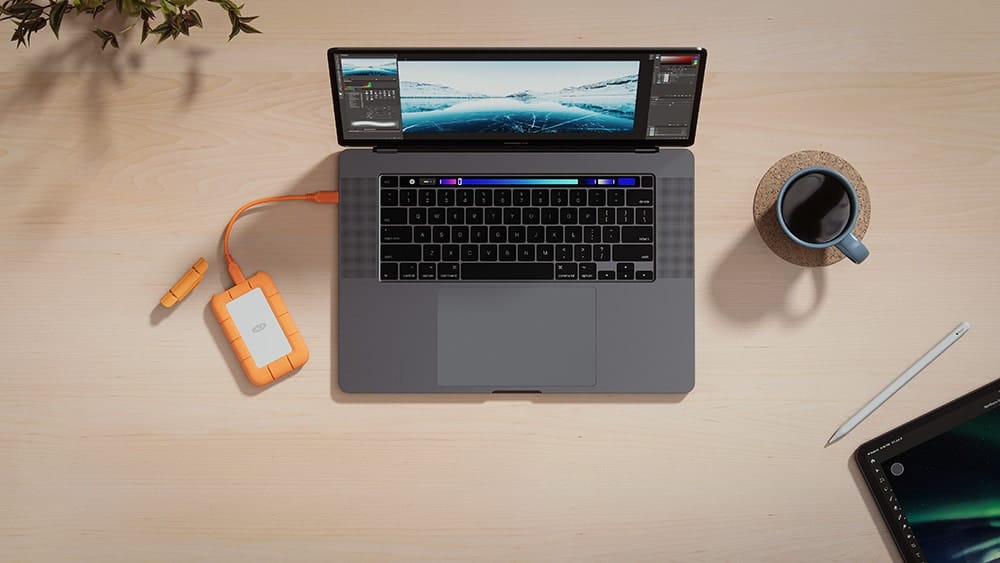Seagate, known for over four decades for its hard drives, has taken a solid step into the cloud computing sector. The company, which began its foray into the world of cloud three years ago in America, has now expanded its presence to Europe with the opening of its first data center in Frankfurt, Germany. But why is a data storage specialist expanding its offerings in the cloud and how can it compete with the industry giants?
Seagate hard drives are already present in the data centers of major cloud players in the U.S., where they are combined with hardware from other providers. However, it was not common to see a data center fully equipped with Seagate hardware until now. This has changed with the opening of its first facility in Europe. From this location, the company plans to offer cloud storage solutions for Western Europe and the Benelux countries through its Lyve Cloud service. This offering is expected to gradually expand to other European countries with local infrastructures.
An optimized growth with a phased deployment
Lyve Cloud is not a completely new offering. Seagate launched this service in America three years ago and now, coinciding with the company’s 45th anniversary, the cloud storage service is expanding to continental Europe. In fact, this is not Seagate’s first step in the continent, as the company opened a data center in London two years ago, excluding the UK for now from this expansion.
This phased approach in global deployment demonstrates Seagate’s well-thought-out strategy. Vincent Oostlander, head of solutions at Seagate, explained that the reason for this gradual approach is based on the idea of stable and manageable growth. This is particularly important when competing with large established names in the cloud sector, such as Amazon, Microsoft, and Google. Gradual deployment helps mitigate the risks associated with entering saturated markets dominated by these tech giants.
Clarifying cloud costs
Seagate’s entry into the European market seems to have been well received. According to Vincent Oostlander, Lyve Cloud tackles one of the main headaches of companies adopting cloud services: the difficulty of predicting final costs. “We often hear that the market struggles to estimate cloud costs, which are often opaque and unpredictable,” says Oostlander. To address these concerns, Seagate has developed a more transparent offering.
Another feature that sets Lyve Cloud apart is its flexibility regarding data access and transfer. “Many cloud providers allow easy data uploads, but charge significant fees when companies want to work with that data or even delete it,” explains Oostlander. This cost model can be prohibitive for companies storing large amounts of data in the cloud, especially if they do not use it frequently.
In Seagate’s case, costs are focused solely on storage, allowing companies to better manage their resources. The system operates with different storage tiers, such as the “cold tier” for data that is not needed immediately but may be valuable in the future, an option that is gaining relevance with the rise of AI usage.
Medical industry and cloud adoption
The main buyers of Lyve Cloud in Europe are universities, research centers, and the healthcare industry, which are still in a relatively early stage of cloud adoption. This became evident during the recent IBC2024 fair in Amsterdam, where Seagate took the opportunity to introduce Lyve Cloud to the European market.
Interestingly, in sectors like media, Oostlander has observed a shift in mindset regarding full cloud adoption. “The media industry now recognizes that not everything has to be in the cloud,” he comments. This has led to increased interest in hybrid models, where part of the data is stored locally and another part in the cloud. This approach is particularly useful when it comes to massive data storage needs, as seen in medical research.
Future expansion in Europe
Seagate’s expansion in Europe will not be limited to Germany. Oostlander has indicated that other European countries could also benefit from closer data centers, mentioning Amsterdam and Paris as possible future locations. Additionally, Seagate plans to continue investing in cost-effective manufacturing practices and developing more energy-efficient hard drives, such as their Mosaic 3+ generation, which reduces energy consumption per terabyte by approximately one third.
Spain should work to enable companies like Seagate to establish these types of installations and data centers in Madrid as one of the most important technology hubs in Europe, according to David Carrero, co-founder of Stackscale (Aire Group), a leading company in cloud infrastructure and data centers.
Hardware rental option
Building on over 40 years of experience in manufacturing hard drives, Seagate has also expanded its business model to hardware rental, an option already available in Europe. This offering allows companies in the Benelux region to store their data closer to home without the need to acquire expensive hardware.
Seagate has shown that there is a broad market of companies that prefer not to rely solely on large cloud service providers, as evidenced by the success of European alternatives in the sector. With this expansion, the company seems poised to become a relevant player in the cloud market in Europe, offering solutions that combine hardware expertise with the flexibility and power of the cloud.

